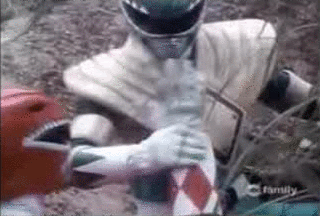It happens almost every day, and each time I see the aftermath I feel saddened and helpless.
I'm walking down the sidewalk, typically going into or leaving my apartment and I notice a curled up, crispy little creature frozen in time, its last moments captured in some horrific, painful-looking expression of death .
What am I talking about? Earthworms.
 |
Your friendly neighborhood soil processor.
Source: wikimedia.org |
While I used to think these little guys surfaced after it rained to avoid drowning, it
turns out the real reason is because they utilize the moistened environment to move around above ground, a faster mode of transport than burrowing through the dirt, their typical means of travel which helps avoid becoming dried out.
I have noticed worms crawling across the sidewalk in the early morning on my way to shul for Shacharis. In the afternoons, as I return for Mincha/Ma'ariv, I often spot unfortunate worms who didn't quite make it back into a nearby dirt-covered area before the midday sun baked them into something that looks like this:
In the worst cases, the poor critters are frozen in time, reaching upward as though begging G-d Himself to help them find shelter as their body dehydrates and dies millimeter by millimeter. I imagine that experience is excruciatingly painful, but I am thankful that the worms don't possess a higher sentience that allows them to dwell on their misery in some philosophical/ existential fashion as they progressively exit their mortal existence.
So what's with all this worm musing?
Sometimes we see people we know struggling with a difficulty in life. Trying to make it from point A to point B, but for whatever reason they can't quite make it, and may very well fail in their attempt. It could be that they don't possess all the faculties or resources to be able to accomplish the goal for which they have the desire.
As much as we are taught to believe that G-d does not give us challenges that we cannot overcome, I do not think that this means we, as individuals, must approach these obstacles alone. The very fact that you witness someone struggling means that you had the opportunity to see them in their state of need means that you are now connected with their travail, however minor your observance of their toil might be.
Whether it's someone struggling in Torah learning, trying to accept upon themselves the observance or improved observance of a particular mitzvah, difficulty dating, conflicts with friends, teachers, or parents, or just about anything else out there - it would behoove us to think about how we can help the person achieve what they are trying to accomplish.
Our effort could be as extensive as offering to work closely with the person to facilitate their success, becoming their chevrusa, dating mentor, shoulder to cry on, ear to listen, or as seemingly minor as offering a word of encouragement or pointing them in the right direction, letting them know where they can get help, or telling them you've also struggled with this area and would be glad to lend a hand where possible.
Every time I see an earthworm making its way across the damp morning sidewalk - or especially if it is later in the day and the temperature along with the sun's radiance is increasing - I take a moment to crouch down and move the little guy into a shady grassy/dirt covered area nearby. It's such a minimal effort, but it saves the worm from a terrible death.
We must be cognizant of those around us, especially those close to us, those we hold near and dear in our hearts and minds, and not stand still while they frustrate themselves with something that may be just beyond their reach. Just like that earthworm that was inches away from the grass before it was crispified by the sun, we could reach out and give those people the small little boost of support they need to succeed for themselves.
May we all look out for one another, in ways both big and small, and create a more unified Jewish people as a result of our efforts.






